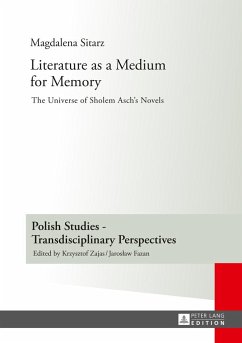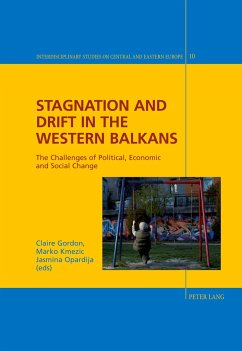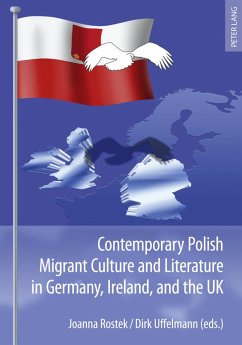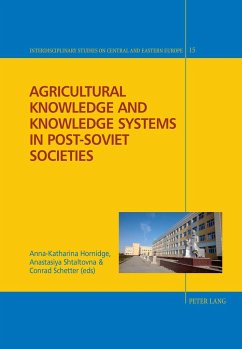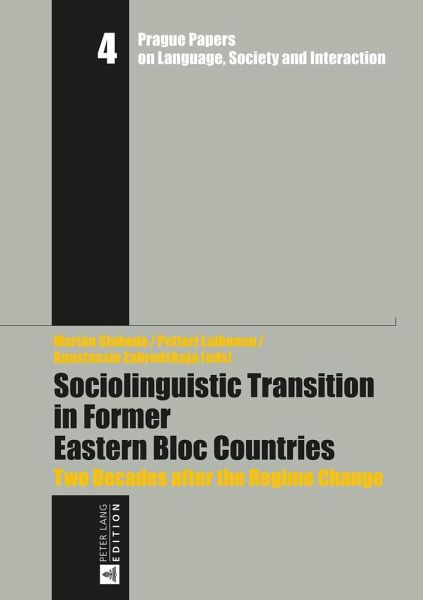
Sociolinguistic Transition in Former Eastern Bloc Countries
Two Decades after the Regime Change
Herausgegeben: Nekvapil, Jirí; Sherman, Tamah; Kaderka, Petr; Sloboda, Marián; Laihonen, Petteri; Zabrodskaja, Anastassia
Versandkostenfrei!
Versandfertig in 6-10 Tagen
117,60 €
inkl. MwSt.

PAYBACK Punkte
0 °P sammeln!
This volume offers empirical perspectives on the current sociolinguistic situations in former Eastern Bloc countries. Its seventeen chapters analyse phenomena such as language choice, hierarchies and ideologies in multilingualism, language policies, minority languages in new legal, educational, business and migratory contexts, as well as the position of English in the region. The authors use various methodological approaches - including surveys, discourse analyses, descriptions and analyses of linguistic landscapes, and ethnography - in order to deal with sociolinguistic issues in eight countr...
This volume offers empirical perspectives on the current sociolinguistic situations in former Eastern Bloc countries. Its seventeen chapters analyse phenomena such as language choice, hierarchies and ideologies in multilingualism, language policies, minority languages in new legal, educational, business and migratory contexts, as well as the position of English in the region. The authors use various methodological approaches - including surveys, discourse analyses, descriptions and analyses of linguistic landscapes, and ethnography - in order to deal with sociolinguistic issues in eight countries and seven regions, from Brandenburg, Germany, in the West to Sakhalin, Russia, in the East.






